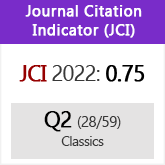La denominación del gobernante en los historiadores latinos de la Antigüedad tardía. Estudio léxico
DOI:
https://doi.org/10.3989/emerita.2004.v72.i2.68Keywords:
ruler, Iordanes, Gregorius Turonensis, augustus, augusta, caesar e imperator, rex, regina, regnator, regulus, subregulus, regalisAbstract
This paper studies the vocabulary to designate a governor in Jordanes' De summa temporum uel de origine actibusque gentis Romanorum and De rebus Geticis and in Gregorius of Tours' Historia Francorum. Firstly, the terms augustus, augusta, caesar e imperator are analised; then princeps, that refers both to the Roman one and to that of other people; next, rex, regina, which keep being the terms to name Roman kings and, besides, designate the leader of other people. This same value, but restricted to monarches of smaller states, has less frequent terms in the Clasical age, such as regnator and regulus, and later ones such as subregulus and regalis. Some of these terms ended up dissapearing, but many of them have survived in modern languages.
Downloads
Download data is not yet available.
Downloads
Published
2004-12-30
How to Cite
Conde Salazar, M., & Martín Puente, C. (2004). La denominación del gobernante en los historiadores latinos de la Antigüedad tardía. Estudio léxico. Emerita, 72(2), 267–286. https://doi.org/10.3989/emerita.2004.v72.i2.68
Issue
Section
Articles
License
Copyright (c) 2004 Consejo Superior de Investigaciones Científicas (CSIC)

This work is licensed under a Creative Commons Attribution 4.0 International License.
© CSIC. Manuscripts published in both the printed and online versions of this Journal are the property of Consejo Superior de Investigaciones Científicas, and quoting this source is a requirement for any partial or full reproduction.All contents of this electronic edition, except where otherwise noted, are distributed under a “Creative Commons Attribution 4.0 International” (CC BY 4.0) License. You may read here the basic information and the legal text of the license. The indication of the CC BY 4.0 License must be expressly stated in this way when necessary.
Self-archiving in repositories, personal webpages or similar, of any version other than the published by the Editor, is not allowed.














